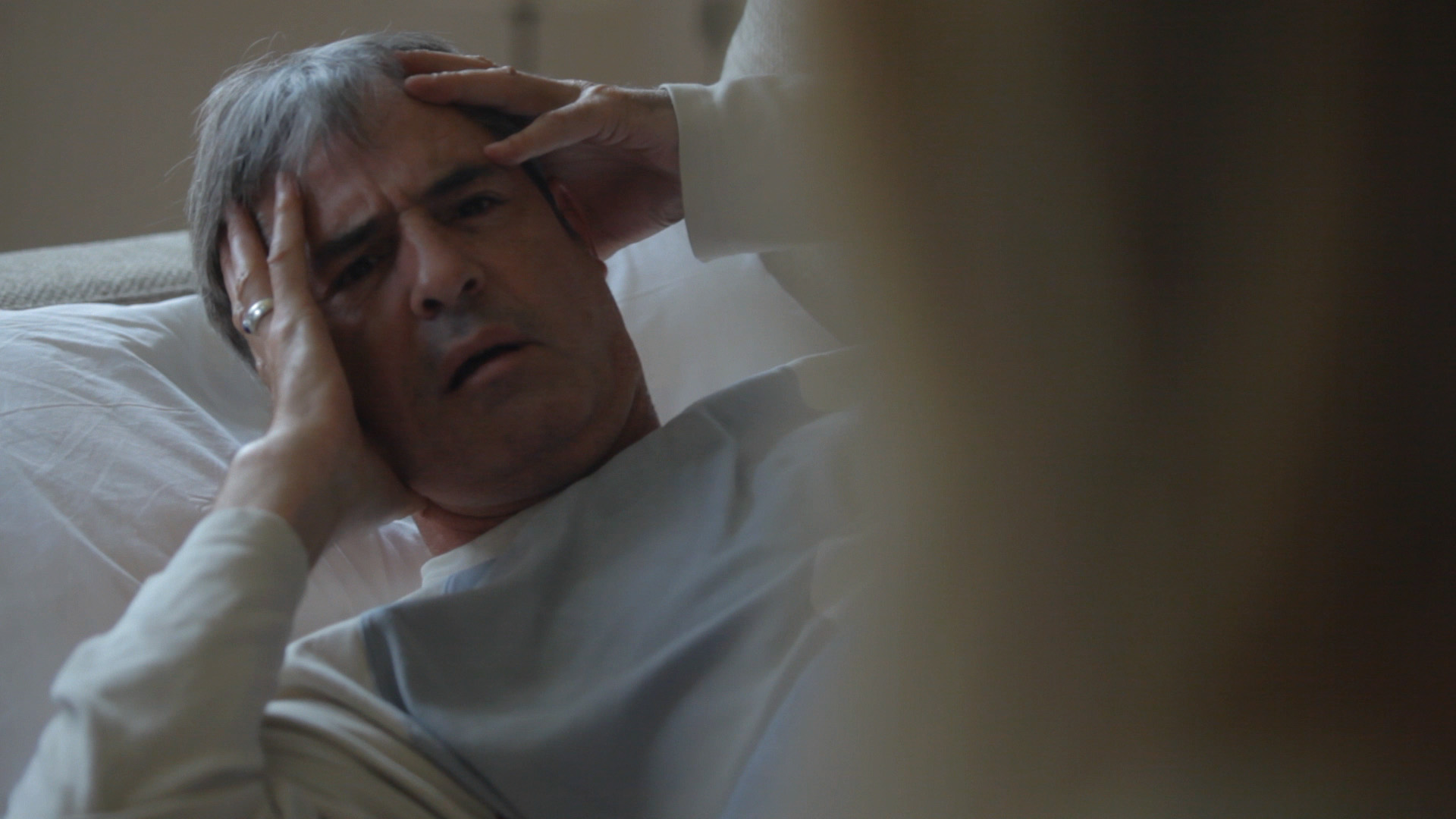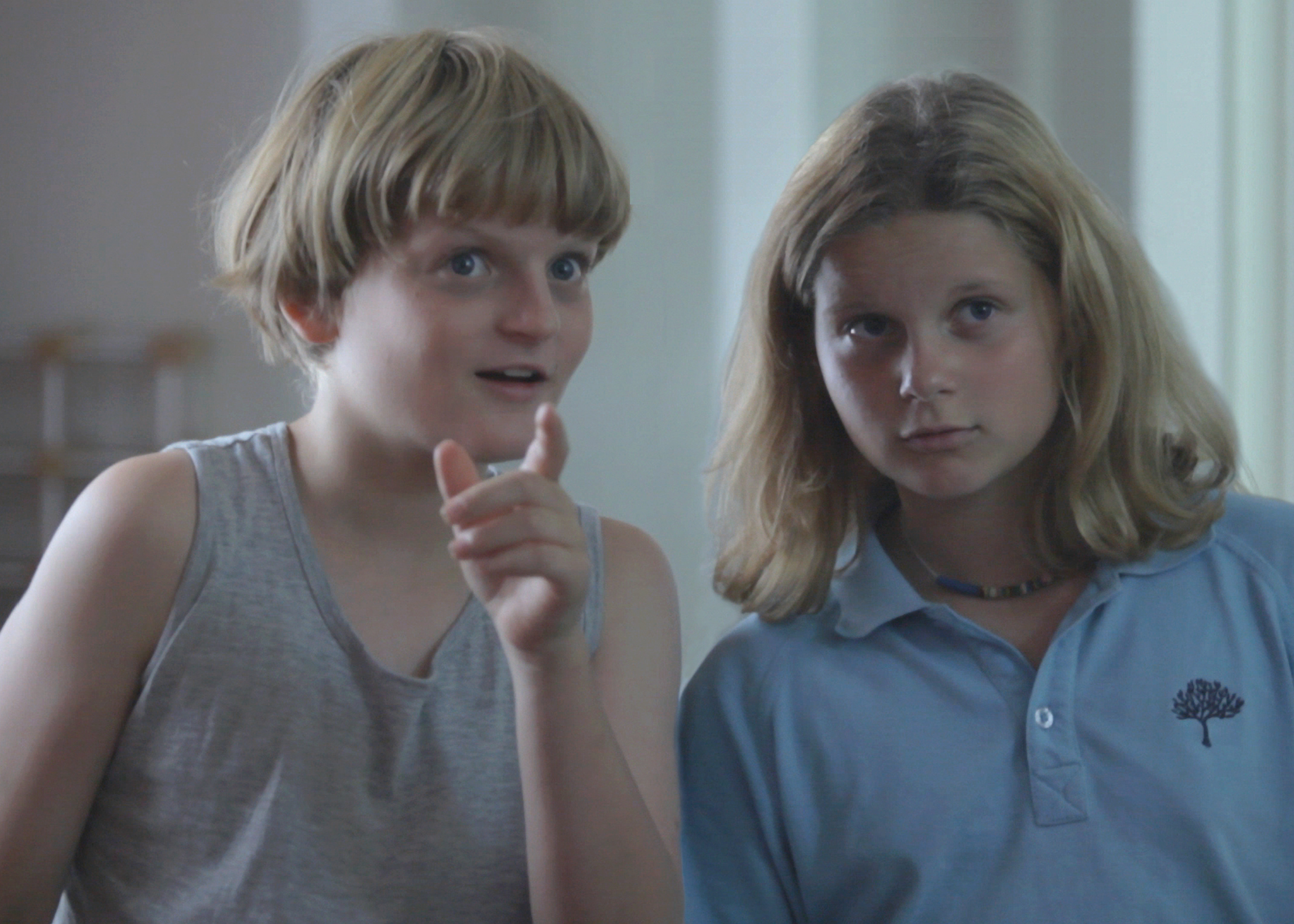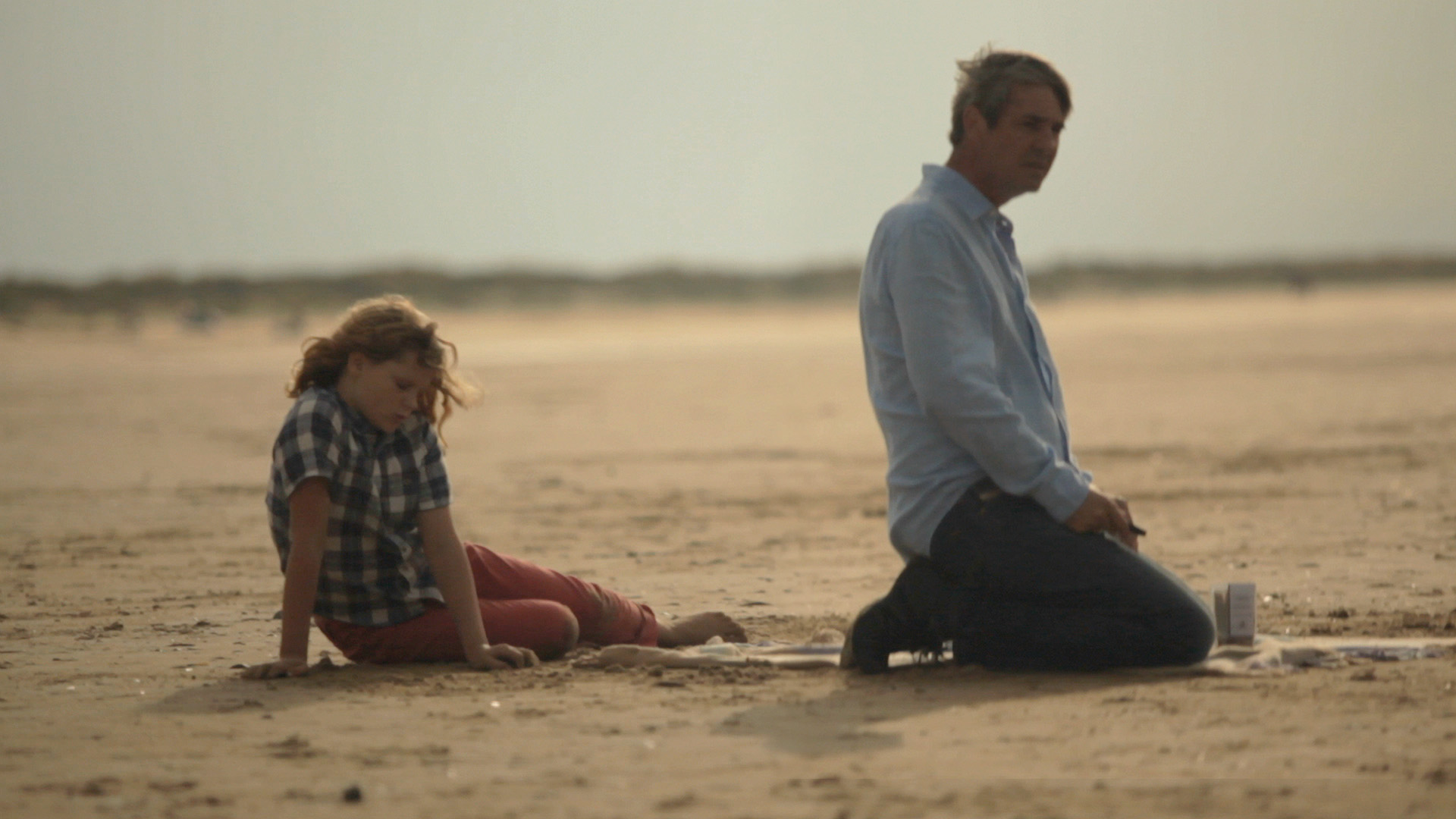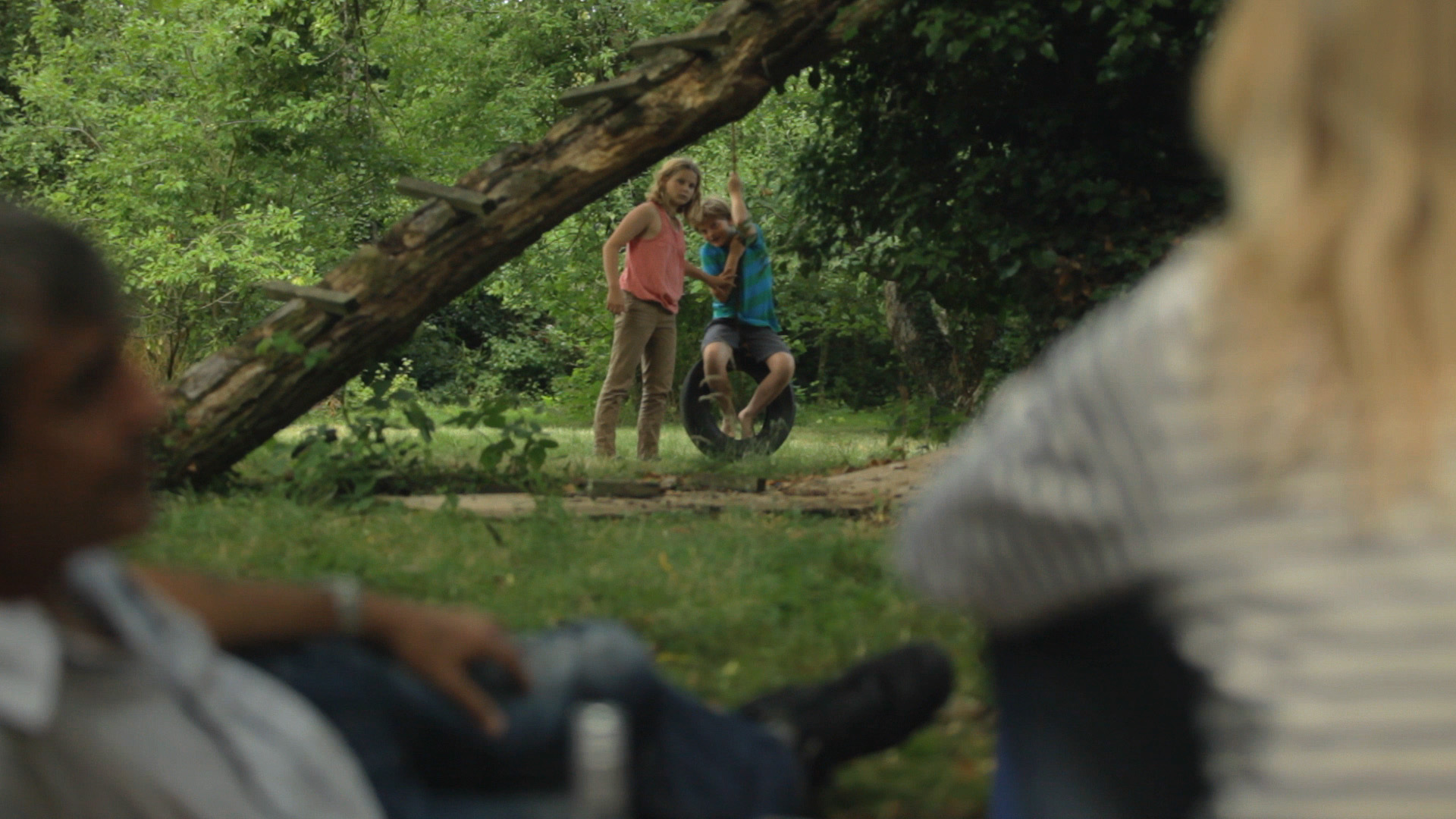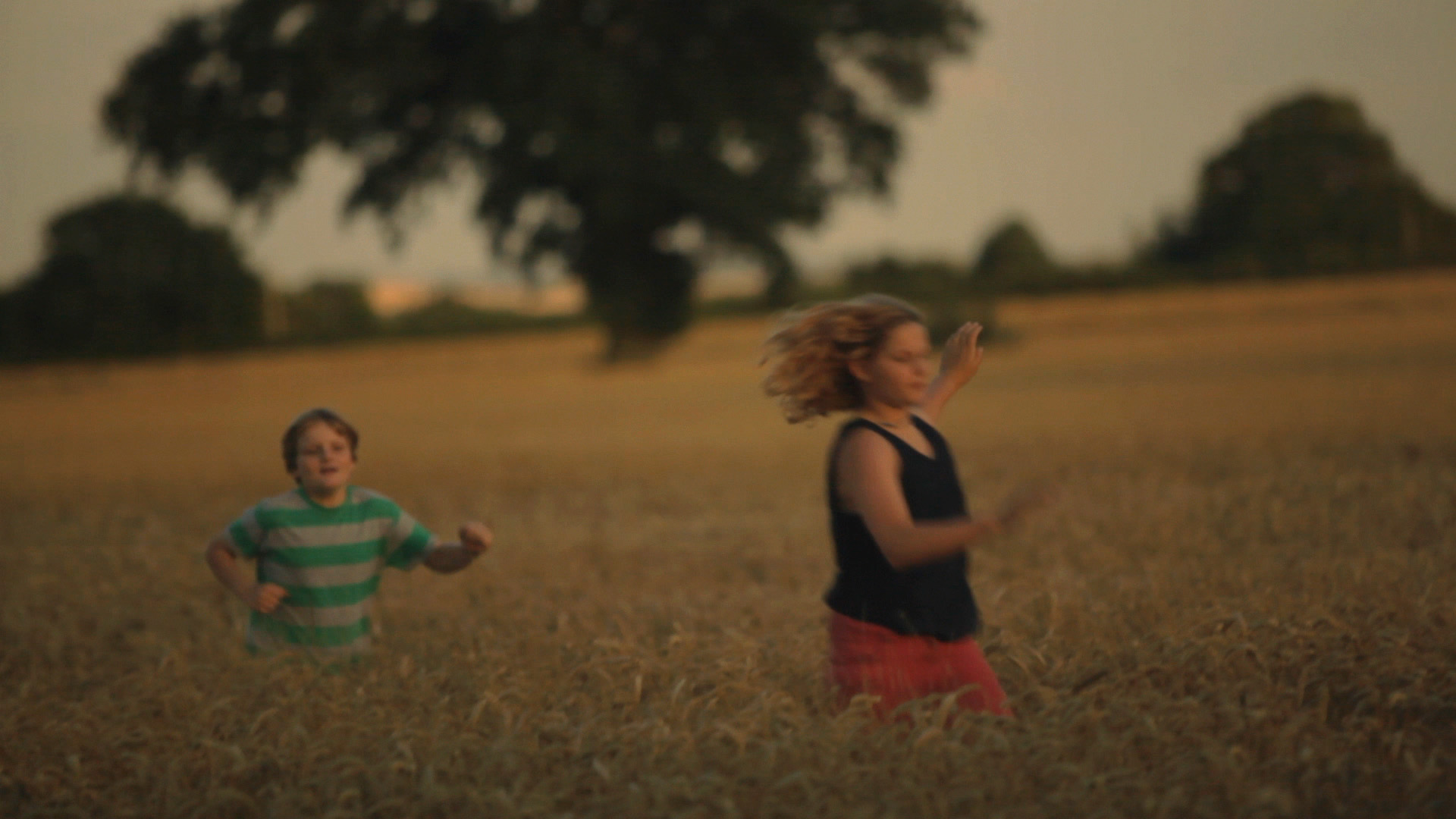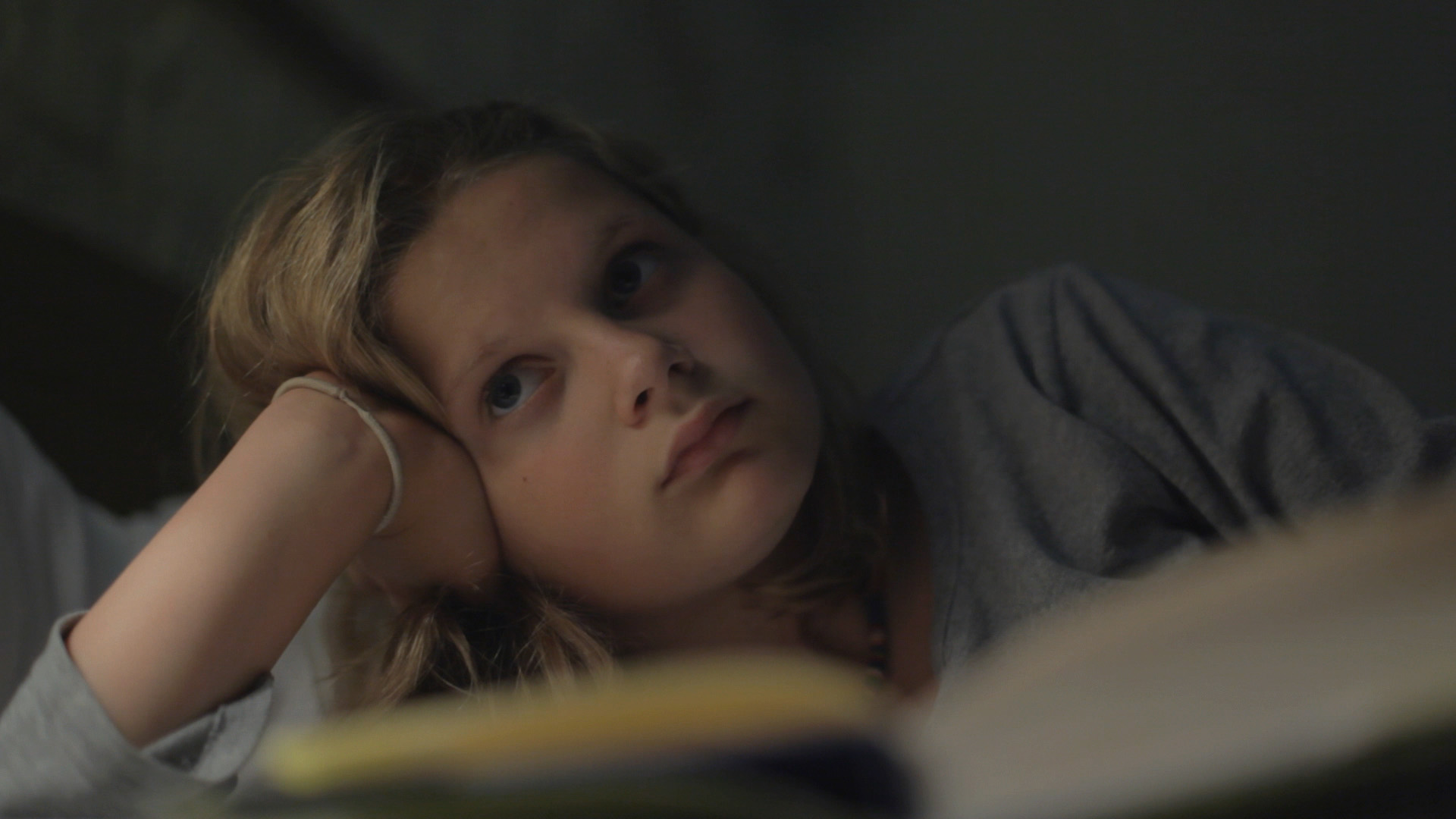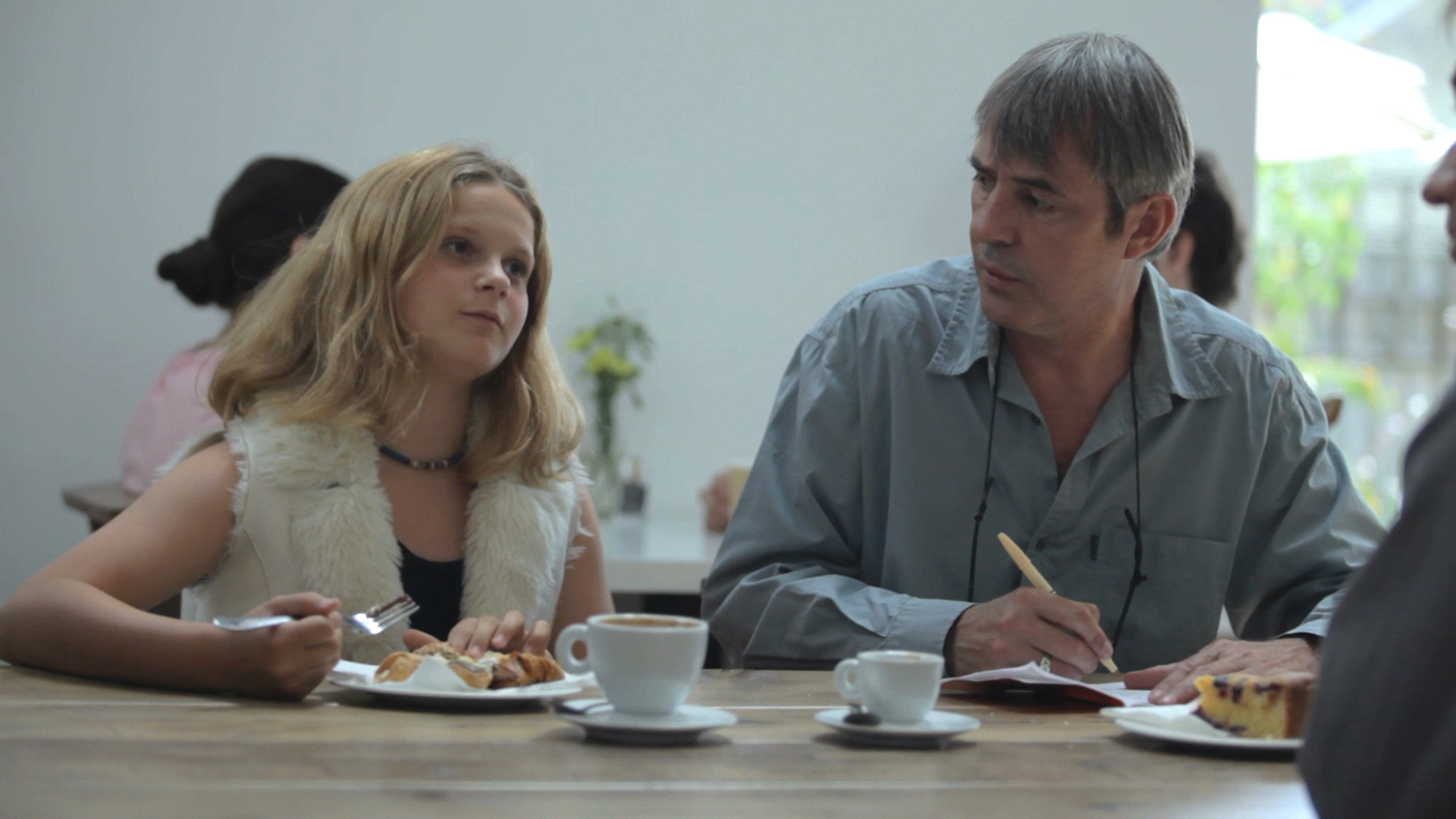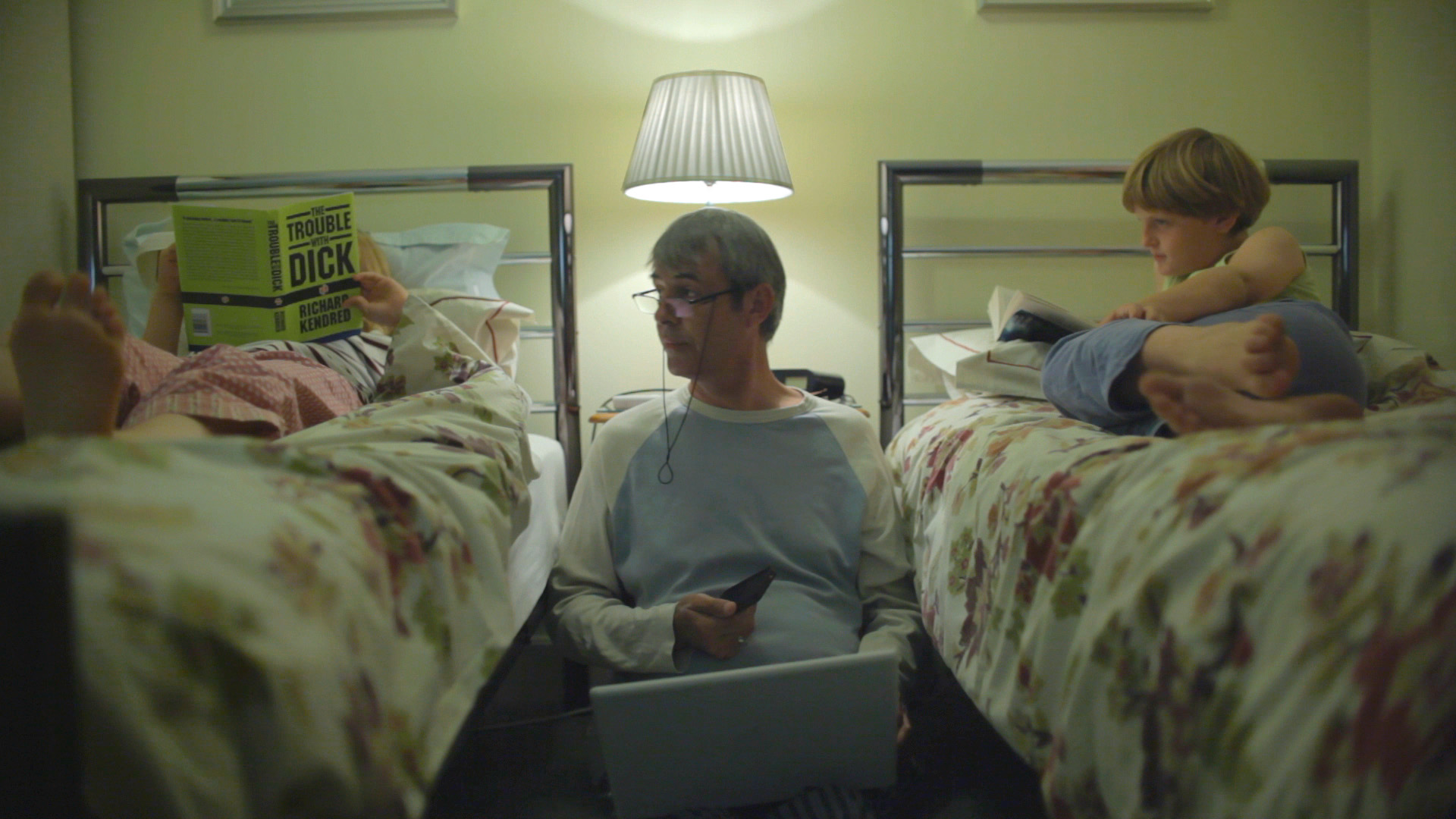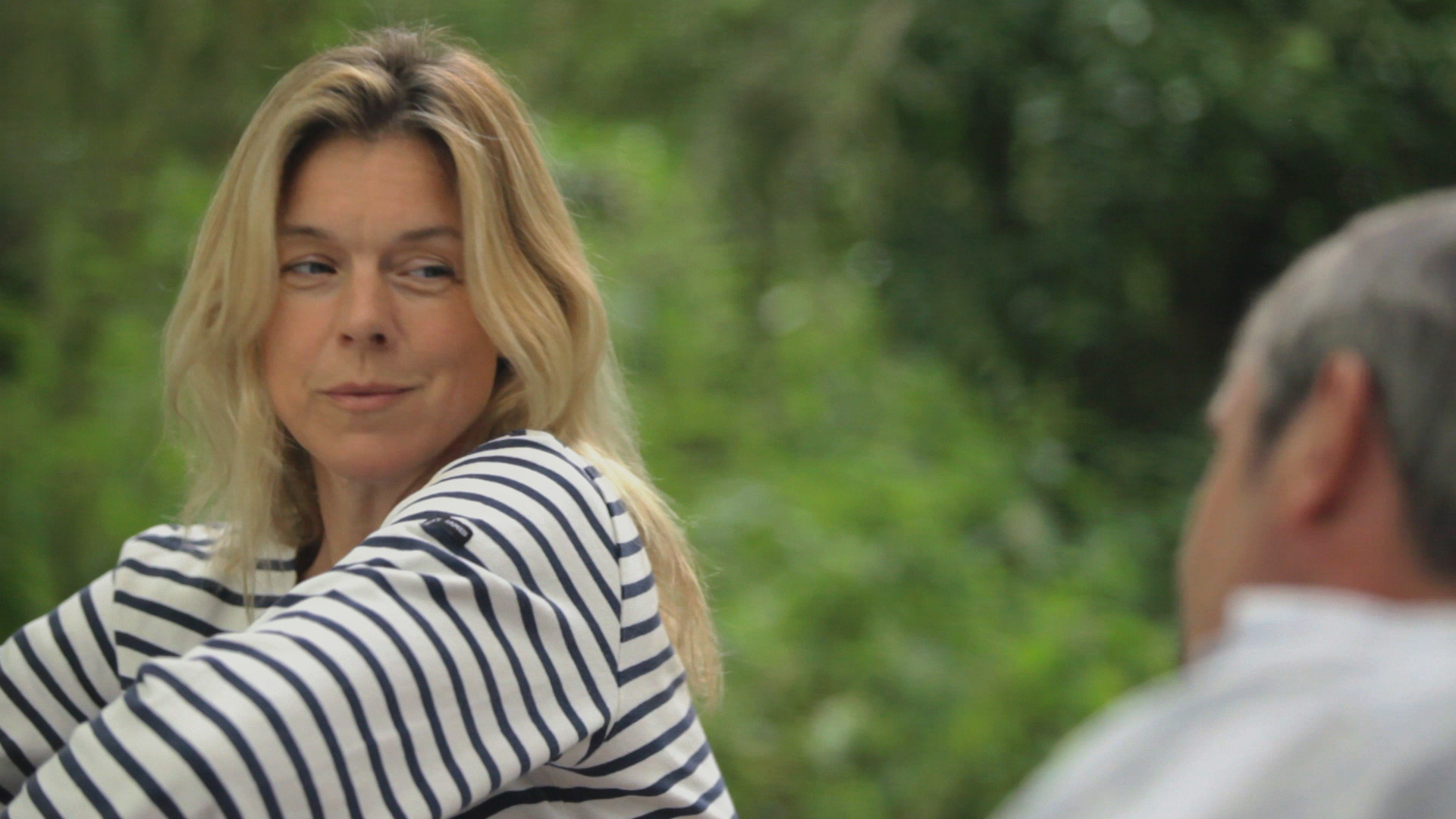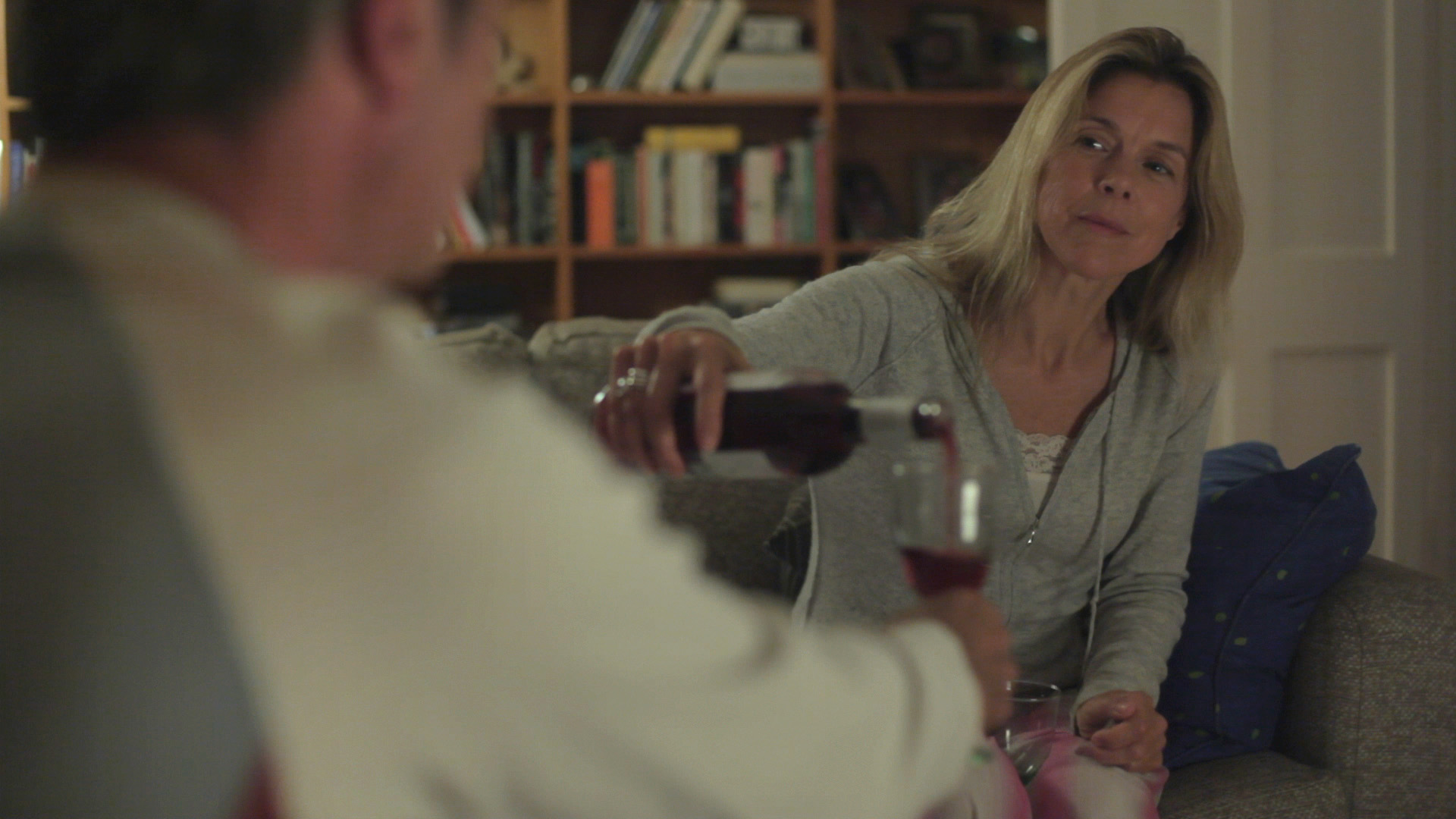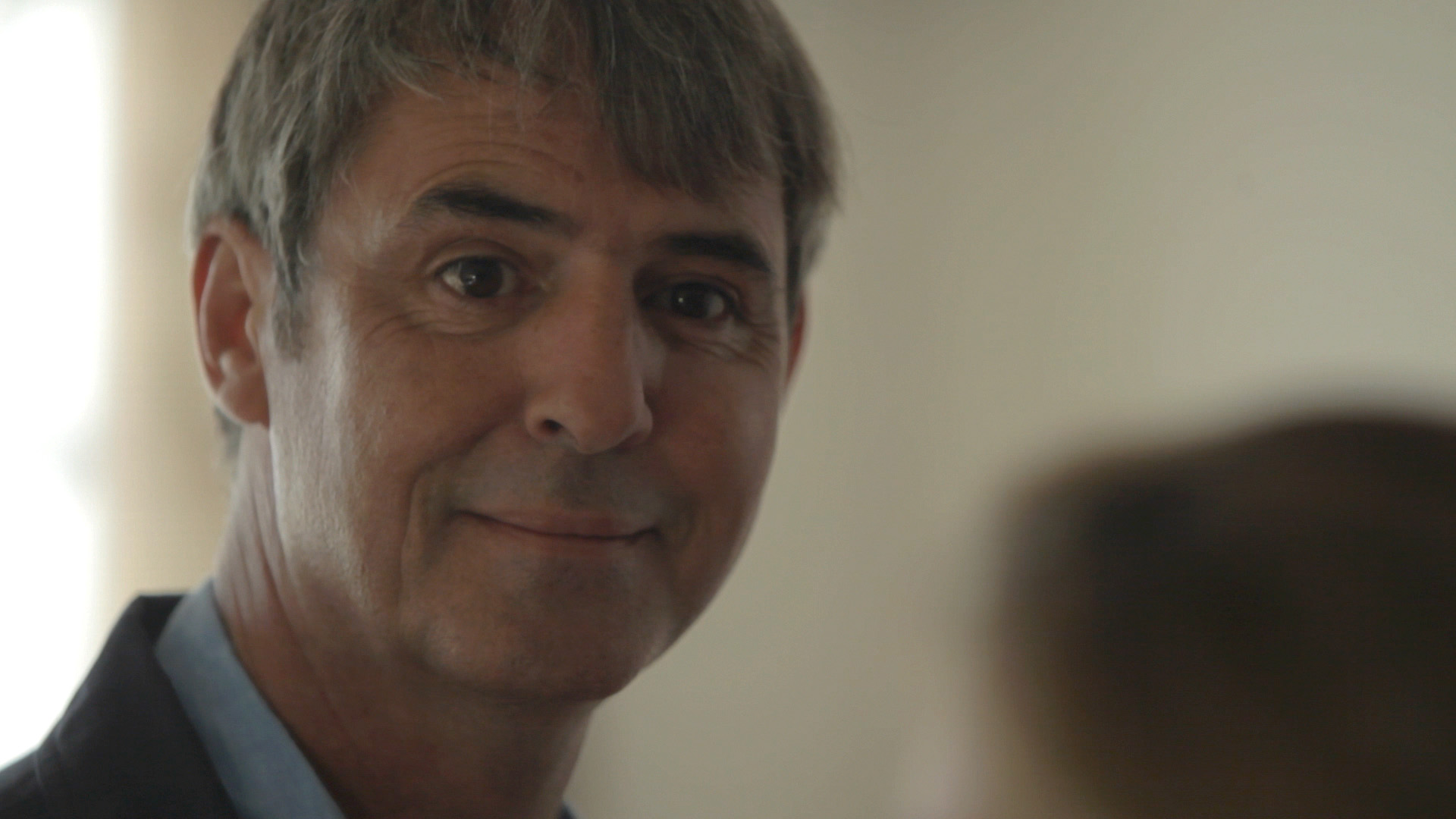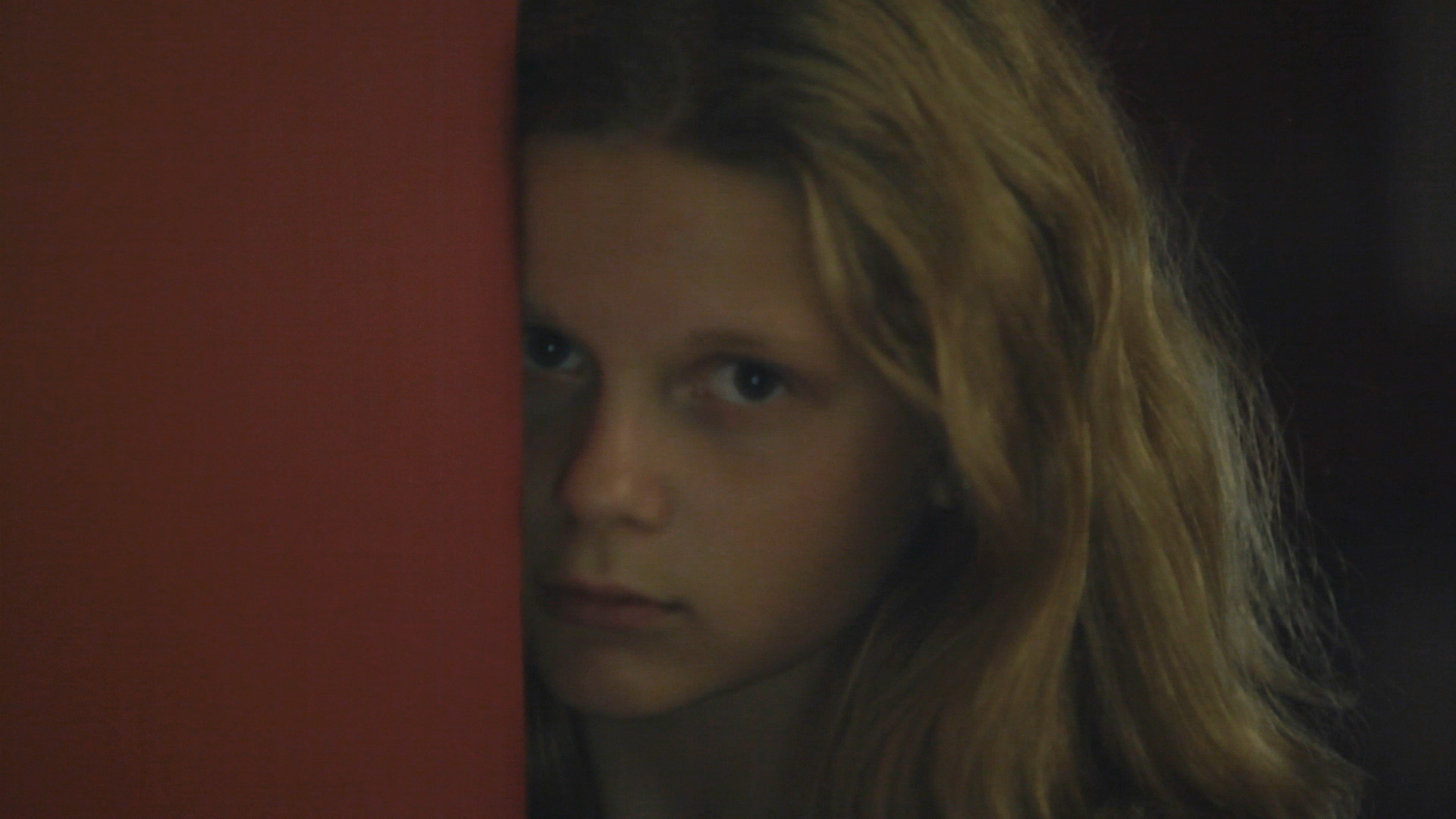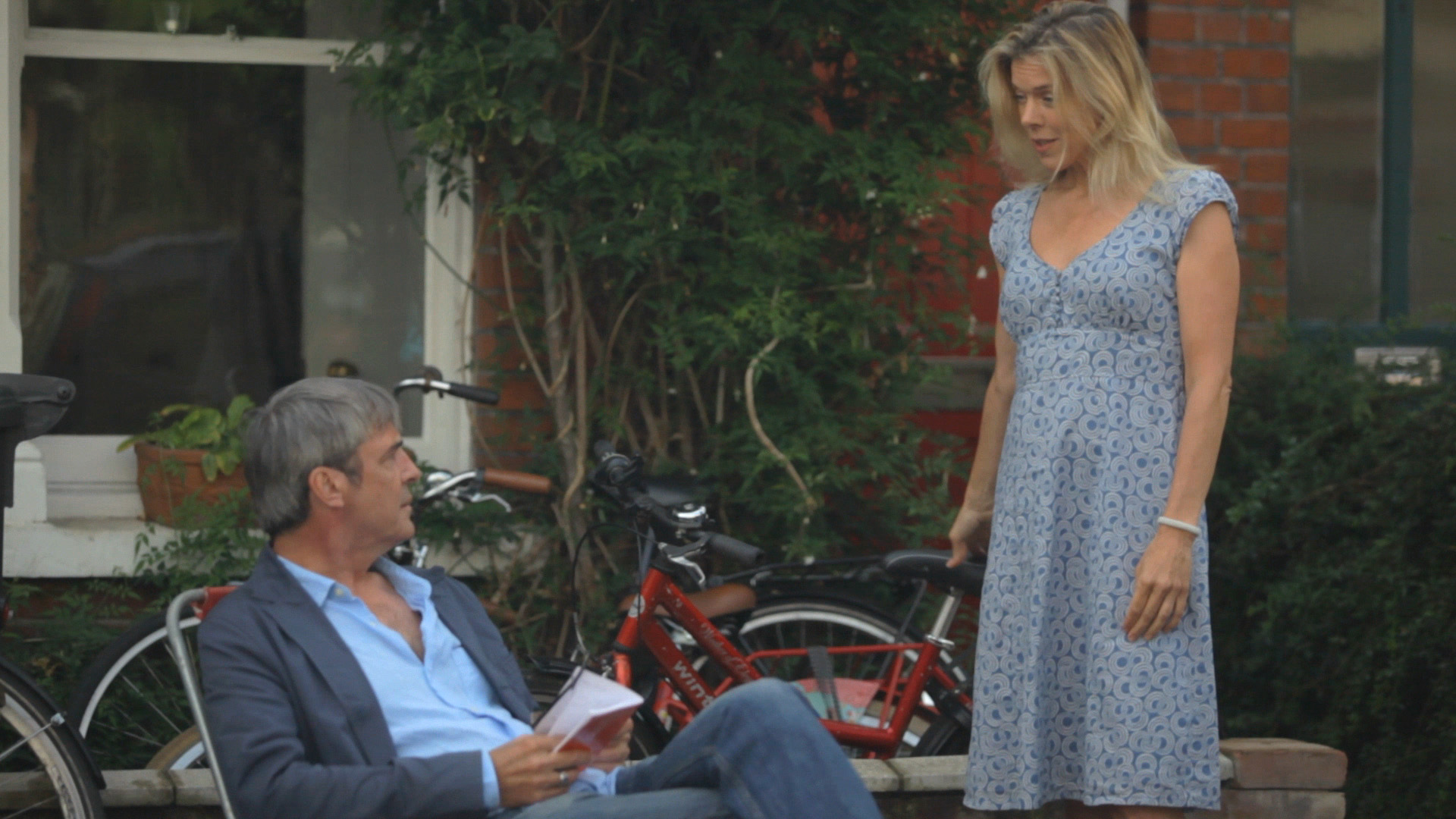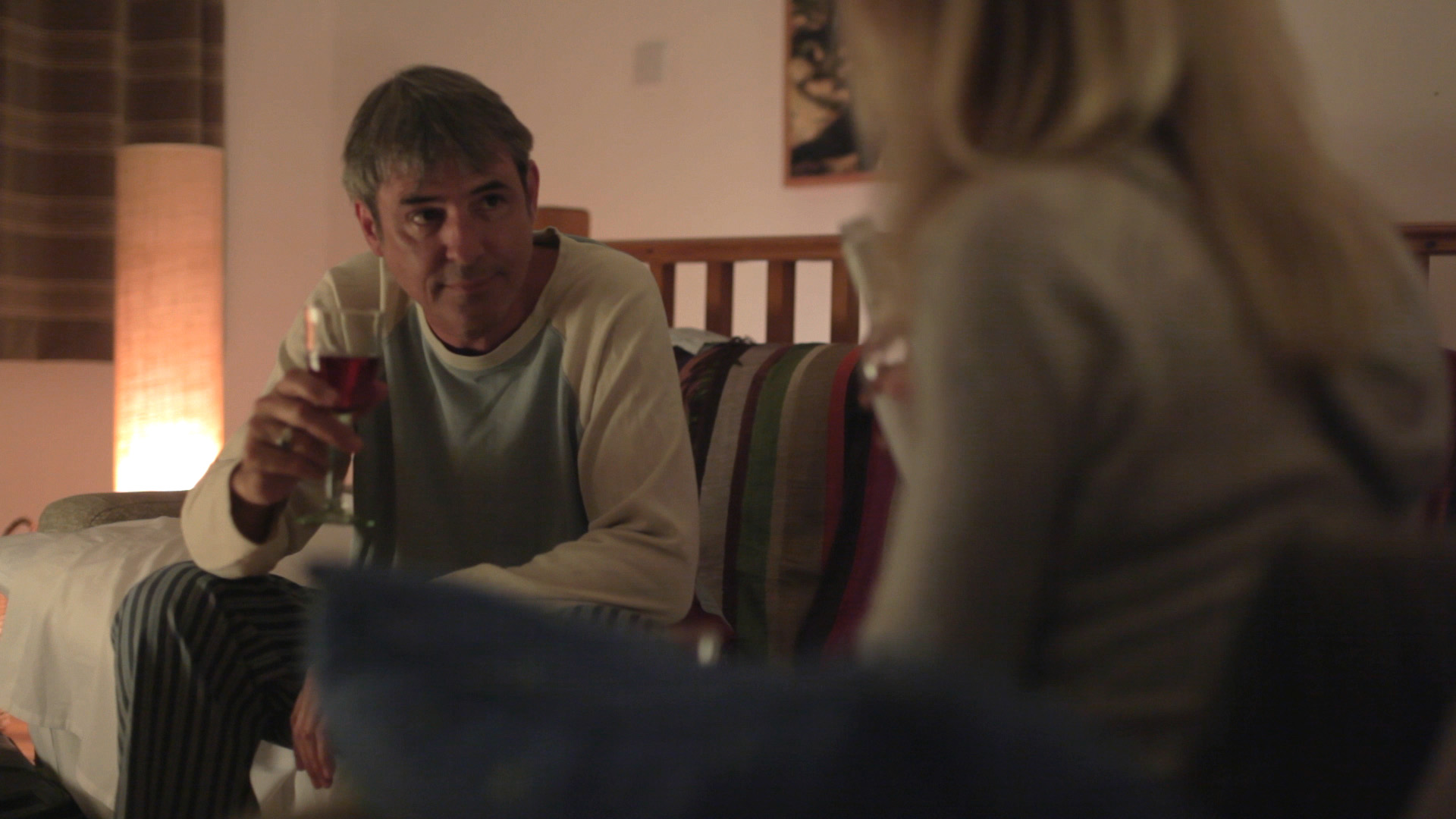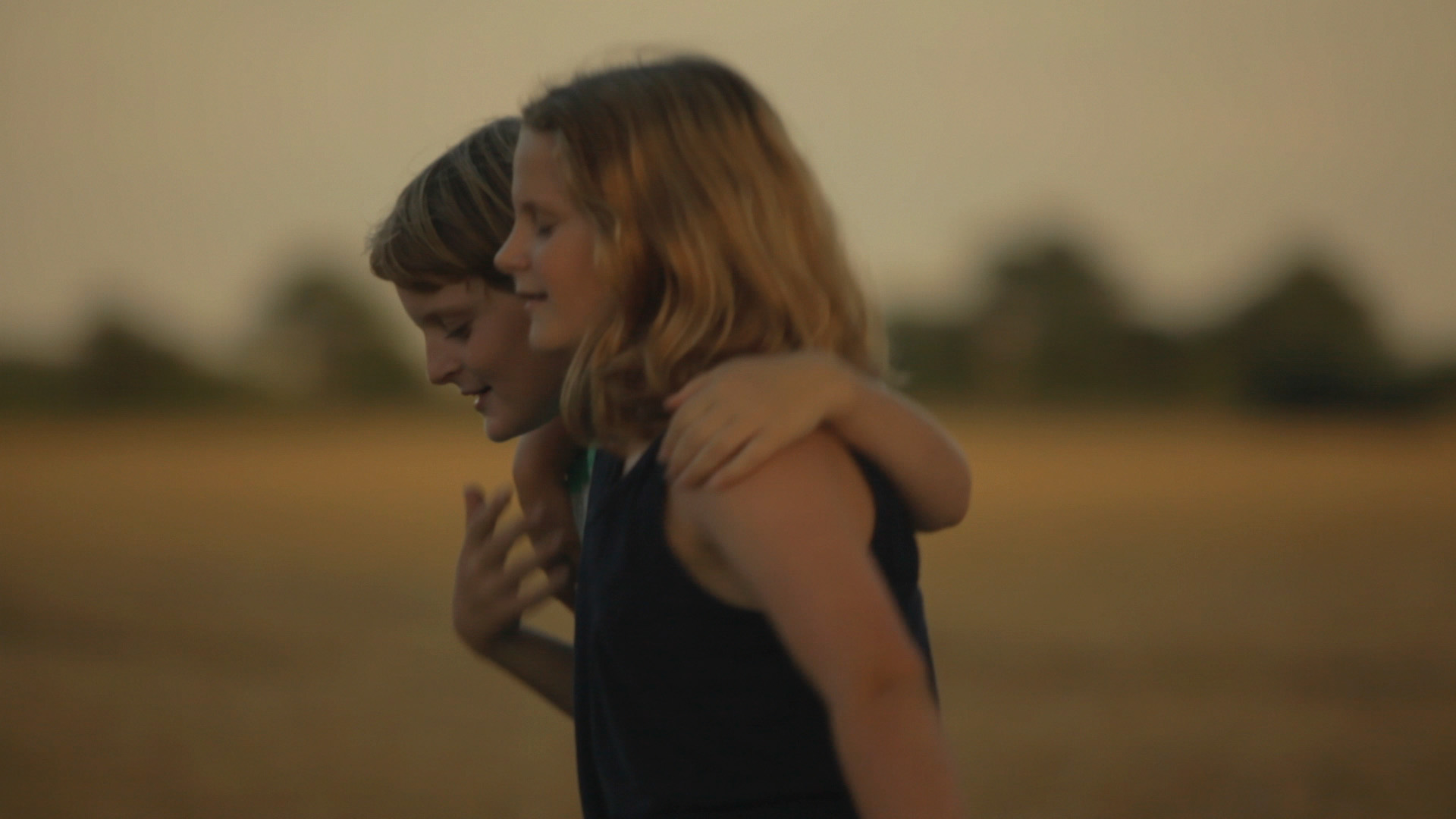Click image for more photos
CAFFIEND
Synopsis
Richard Kendred (Neil Morrissey), a writer living in Brooklyn, has not seen Diane Freed (Janie Dee), his English ex-girlfriend, for several years. Diane now teaches at Cambridge University. She is the single mother of Dot (12) and Harry (10), and Richard has never met her children.
Richard, impecunious and obsessively frugal, has frequent flyer miles that are about to expire and the prospect of a job to write a magazine article for an English magazine. His career is in a state of crisis, as he waits to hear if his publisher accepts his new novel, so he decides to combine the job with a visit to Diane in England.
Richard wrote about Diane in his acclaimed first novel, “The Trouble with Dick,” and Diane still harbors some annoyance about the unflattering portrait of her in Richard’s book. But she values Richard’s friendship and welcomes his visit.
When Richard gets to Cambridge, there is still a romantic spark between Richard and Diane but he finds Dot & Harry overwhelming. A confirmed bachelor, he’s never spent any time with children.
Diane receives a call for help from her sister and asks Richard to take care of Dot and Harry for a few days while she goes to help her sister. Richard reluctantly agrees.
After Diane leaves, Richard gets a call from the magazine editor. His assignment is to write about high-end coffee and pastry shops around England, and the piece is due by the end of the week.
Richard hates coffee, Diane is unreachable by phone, and he must now cajole the kids into coming along on a road trip to visit boutique coffee shops. The kids have a secret agenda – to meet their biological father, which Diane has never allowed. Richard doesn’t know how to handle kids, but the kids know how to handle him.
In the course of the road trip, a deep and complex relationship develops between Richard and Dot and Harry. Harry develops a flair for coffee and Dot has pastry expertise and Richard enlists their help to write the magazine article. The visit to meet their biological father is emotionally devastating, but is also an important step in their evolving relationship with Richard.
Richard and Dot & Harry complete the road trip, and when Diane belatedly returns home, she finds them all changed by their experiences. Dot and Harry now realize they need a father and Richard learns that he wants to be one.
Director's Statement
I have a specific memory of being in the kitchen with Dot & Harry. Spontaneously they did a dance routine together, got into a complex and self-consciously absurd argument and I thought, “This is the movie! Right here in front of me! This is the movie I need to make, a movie with them!”
That was the moment when the quest began. I knew that if I did not make a movie with Dot & Harry that I would always regret it.
The summer before I’d had them on my own in Umbria, and to quell arguments in the car I (spontaneously again) started telling a story...about Dora and Elenora, who were travelling with their father. And the climax of each episode was the Dad saying in desperation, “You’re driving me insane!”
Drive Daddy Insane was the working title of the screenplay – that I could never get to work. Until I went back to that attic of story parts rattling in my head and pulled out the characters of Richard Kendred the writer and his sometime girlfriend Diane back out. I had already built two movies around these characters: The Trouble with Dick and Crashing. Somehow they gave me the catalyst and underpinning I needed to fashion a story about Dot & Harry – and Richard.
The summer vacation in England is five weeks, and as the kids needed a real vacation I only had them for four weeks, and shooting needed to start only days after the school term ended, and it did.
The kids had no idea of how hard it would be and neither did I. We had to shoot a major scene every day.
Before we started shooting, I asked the children what names they would like to give their characters. Harry wanted to use his own name, because he thought it would be confusing to be called something else. I hope that doesn't cloud the fact that this is a fictional film, and not a documentary. Yes, I cannot be objective, but objectivity in filmmaking I consider impossible, but I remain awed by what natural and committed performances they give. There was such bravery in their willingness to dive in and make the film.
The original title was "Caffiend" but I feared that was confusing. When I proposed the title "The Trouble with Dot and Harry" I remember Harry at first not liking it and then having an "aha!" moment -- it's not that Dot & Harry are trouble, but that they are in a troublesome situation. Multi-levelled (in the parlance of our times). I of course liked the referencing back to "The Trouble with Dick" -- it's all one long movie to me, a roman fleuve as it were. But for now I will revert to "Caffiend." If there can be director's cuts for movies, why not director's titles?
Each film that I make is, I believe, a combination of direct and indirect autobiography. The balance of direct-indirect can vary widely, but I regard each film as a snapshot of where I am in my life. In the case of this film I had a profound sense of catching my children at the moment where they were poised at the end of childhood.
I am so naïve that I blocked out consideration of how miserably the whole venture could have failed.
And when I was finished shooting I had absolutely no idea if the film worked or not. I knew there were powerful moments on the set and if I had captured some of these moments then the film would work.
Exhausted, I worked at a furious pace to do a first cut of the movie. I would quickly cut a scene, and when I was convinced that the scene would work, I pushed on to the next scene, to see if it would work. At the end of this process I had a very rough cut and a great sense of relief.
In writing the script I channeled Dot and Harry’s voices. I wrote scenes as I thought they would behave in those situations created by the story. It was my best guess as to what they might say. When we were filming, there was freedom to adjust and embellish. My impression was that there was a lot of adlibbed dialogue, but when I completed editing I reread the screenplay and was surprised how closely the dialogue conforms to what is in the shooting script.
It was interesting editing the movie with Dot and Harry often in the room – and not paying much attention. It was just something that Dad was doing. Occasionally Dot, unhappy with her wardrobe choice would say, “I hate this stupid movie! Stop working on it.”
Finally, after I had an hour edited, Dot insisted on seeing the film. I dreaded her reaction. What if she did hate it? After about ten minutes she said, “This is the best movie I’ve ever seen. And I’m in it!” (I’m sure she’ll be annoyed at me for this anecdote.)
On a personal level, the real power of the film with be in thirty years, as a record of Dot and Harry at age 10 and 12, at the end of childhood. A memorial and a memento of an August we spent together making this movie. Harry told me that it was the most powerful experience of his life, and it was for me too.

